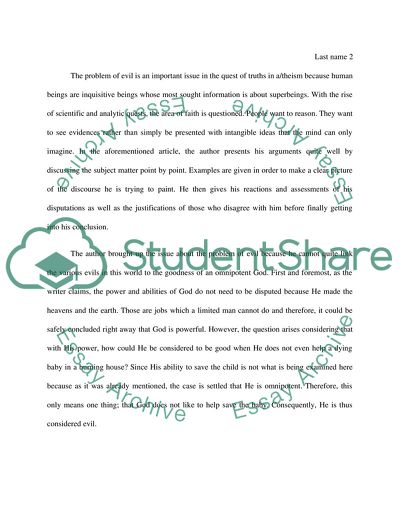Cite this document
(Did Evil Really Triumph over Traditional Theism Essay, n.d.)
Did Evil Really Triumph over Traditional Theism Essay. https://studentshare.org/philosophy/1810176-the-problem-of-evil
Did Evil Really Triumph over Traditional Theism Essay. https://studentshare.org/philosophy/1810176-the-problem-of-evil
(Did Evil Really Triumph over Traditional Theism Essay)
Did Evil Really Triumph over Traditional Theism Essay. https://studentshare.org/philosophy/1810176-the-problem-of-evil.
Did Evil Really Triumph over Traditional Theism Essay. https://studentshare.org/philosophy/1810176-the-problem-of-evil.
“Did Evil Really Triumph over Traditional Theism Essay”. https://studentshare.org/philosophy/1810176-the-problem-of-evil.


